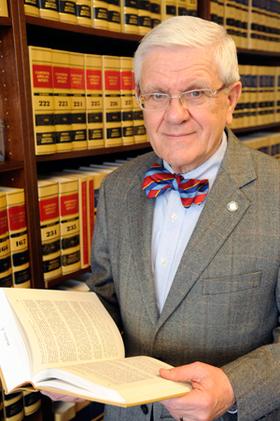Committee Issues Advice on Accepting Attorney Services from Law Firms
A state Supreme Court committee issued expedited advice regarding whether an appellate court justice may accept the services of an attorney, who is an employee and incoming associate of a law firm, to temporarily work in the justice’s chambers.
In an expedited opinion posted on the committee’s website, the Supreme Court Committee on Judicial Ethics Opinions (CJEO) concludes a justice may not allow a law firm attorney to work for the justice because the attorney’s services are a prohibited gift from the law firm under the Code of Judicial Ethics and could appear to lend judicial prestige to advance the law firm’s reputation.
In CJEO Expedited Opinion 2021-038, the committee notes justices are generally prohibited from accepting gifts and that gifts from lawyers are especially suspect. Even if a justice were to disqualify when the law firm appeared, the attorney’s presence might still raise an appearance of influence or endorsement of one law firm over others.

“This opinion underscores the need for judges to guard against the suggestion that anyone, particularly a law firm, is in a position to influence the court. We are pleased to provide this advice on an expedited basis to help judges and justices navigate what is ethically permissible,” said Justice Ronald Robie, who chairs the committee.
The committee also notes in its opinion that accepting attorney services from a law firm is distinguishable from accepting services of judicial externs, who are not licensed attorneys and who work in exchange for law school credit.
About the Committee on Judicial Ethics Opinions (CJEO)
The Committee on Judicial Ethics Opinions is a 12-member advisory committee that includes appellate justices, trial court judges, a retired judge, and a commissioner. The committee is appointed and authorized by the California Supreme Court, but its work is independent of the court, the Judicial Council, and all other entities. Its opinions are advisory and do not necessarily reflect the views of the California Supreme Court or any other entity.
The committee issues formal, informal, and expedited opinions on proper judicial conduct pursuant to the California Code of Judicial Ethics and other authorities. CJEO posts its expedited opinions (formerly known as oral advice summaries) on the CJEO website for the benefit of the bench and the public.


